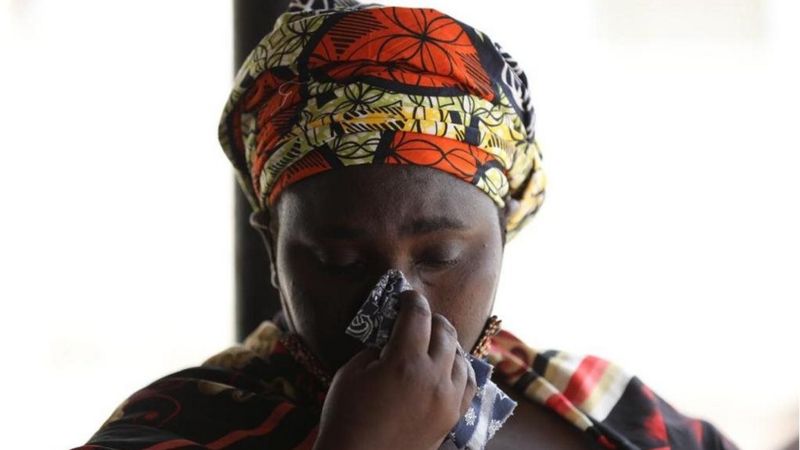The dad pleaded: “Even if our girls remain in the forest, how has the government abandoned us? Why can’t it secure their parents and brothers? I appeal to [Borno] Governor Zulum … to bring peace to our land”. [There have been three attacks recently in the Borno town of Damasak, 320 kilometres north of Chibok, on the border with neighboring Niger – this time by the Islamic State, West Africa Province (ISWAP), which has splintered away from Boko Haram.]
Other figures from Chibok echoed his plea at a prayer vigil held last week at the school where the girls were kidnapped from. “If Nigeria does not rescue our Chibok girls, there’ll be no peace in Nigeria. Boko Haram is increasing in many ways. No amount of intimidation will stop us demanding your [the girls’] rights,” said one mother into a TV news camera.
Asked what she would say to her daughter Sarah in case she might be watching, Rebecca Samuel said: “Keep hope alive; we wait for you.”
Sarah will soon turn 25; she was kidnapped at the age of 17. Samuel also, apparently, shocked her audience by saying she had not heard anything from the government since the release of 82 of the girls in May, 2017.
During the Zoom event, the founder of Citizens’ Hub, Aisha Muhammad Yesufu also boldly challenged the Nigerian government: “What is the crime of a Chibok girl? Is it that she’s a girl? Is it that she’s Nigerian? Is it that she’s poor?”
Event speakers all said they struggle to understand why recent mass school kidnaps (there have been at least three this year alone) have seen those children freed almost the very next day.
They point to initial denials and incredulity by the state and federal authorities; indeed, the president at the time of the 2014 mass abduction, Goodluck Jonathan, eventually ordered an inquiry into the circumstances surrounding the mass kidnap because his government denied the incident had even happened for the first two weeks. The inquiry, led by retired Army General Ibrahim Sabo, submitted its report on 20 June, 2014 – but it has never been published and nothing has been heard of it since, according to one of the speakers.
Hence the slogan for the anniversary event: “Bring Back our Girls – now and alive! Disclosure and closure” – disclosure of the Sabo report and closure for the abducted girls, their parents and communities.
Attendees heard that 20 parents have now died before seeing their daughters – most of them from high blood pressure or other stress-related medical conditions.
Seven years ago, a report showed how the Chibok girls’ kidnap appeared to be part of the Islamist group’s strategic approach to destroy the Christian community in Northern Nigeria where, in some states, Christians still form a significant minority.
Keynote speaker, Cardinal John Onaiyekan – who retired a year ago from his role as Catholic Archbishop of the capital Abuja – said that the failure of President Muhammadu Buhari to fulfil his promise to defeat Boko Haram “by December 2015” showed “graduating incompetence”.
He pointed out that the Nigerian army has claimed to have killed the group’s leader Abubakar Shekau at least four times. He also said that Chibok had led to kidnapping becoming an industry in Nigeria. Onaiyekan also compared the fact that 42 people – teachers and boys – kidnapped in Niger state had been found and freed after ten days, on 27 February this year, while one lone Christian girl – Leah Sharibu – remains in captivity more than three years after abduction (together with UNICEF nurse Alice Loksha, who was kidnapped in October 2018).
Aid groups estimate that more than eight million people in Nigeria’s north-east are in urgent of humanitarian assistance as a result of the ten-year Islamist insurgency.

